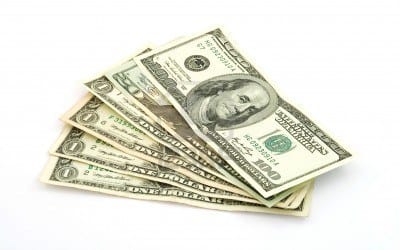- US stocks post gains for fifth month in a row.
- Relief for Treasury as UK shop prices decline.
- HSBC announces $2bn buy back.
- Diageo posts 10.7% profit growth for year, dividend rises 5%.
- BP Q2 earnings dip but dividend rises 10% and $1.5bn buy-back announced.
- UK falls into line with Europe and keeps CE mark.
Wall Street chalked up another positive session last night, leaving July to stand as the fifth rising month in a row. The S&P 500 index of major US companies has now delivered a return of over 19% so far in 2023, outpacing other large markets in the process. The US economy really is too big to ignore and the progress it has made so far this year just underlines this once again. Tech shares have been leading the way and while there may be hype built-in to the excitement around the potential for AI, it just underscores the USA’s strength in the fastest growing industries. For its part, the tech-heavy Nasdaq Composite index is even further ahead, up some 37% so far this year.
Being the UK prime minister has not been a job to make one jump out of bed with a smile on your face for a while now. But today, Rishi Sunak might just do that. The British Retail Consortium has reported that shop prices actually fell in July, only by 0.1%, but posting a fall for the month rather than an increase has pushed the annual pace of shop price growth down from 8.4% to 7.6%. The BRC also flagged a decline in food price inflation for the third consecutive month. This now stands at 13.4%, still very elevated but far lower than the 20% or so witnessed earlier this year. BRC data is not the same as that measured by the Office for National Statistics, but it points to some easing of pressure on the Bank of England in their battle to get inflation back down to target.
HSBC’s shares have risen 2% in Hong Kong following a consensus-beating Q2 and interim results and the announcement of a €2bn share buy-back. Second quarter profits rose by 90% versus a year ago and the group saw Net Interest Margins expand allowing them to raise their expectation for the full year to Net Interest Income of over $35bn.
The one thing that Just Stop Oil have not done is to stop Big Oil making money. BP’s Q2 numbers were lower than the previous quarter, by some margin, but the group felt confident enough in the outlook for its cash flows to hike the dividend by 10% and to announce a larger than predicted $1.5bn buy-back for the quarter. BP’s move to boost shareholder returns is in line with moves by some of the other leading oil producers as they focus on ensuring investors benefit from the strength of cash flow the industry is currently enjoying.
Diageo, the beverages firm behind Johny Walker scotch and Guinness has announced that profits rose by 10.7% for the year to end June, but the market had been expecting a little bit more, explaining the share’s 1% dip at the open. Most of the group’s growth came from their premium-plus brands and Europe and Asia Pacific grew revenues in double digits. But the US market stood still for Diageo, not least because of its rapid growth the year before. New CEO, Debra Crew highlighted the group’s increased investments into stocks of mature aged spirits, their recent brand acquisitions and strength of free cash flow as offering the potential for future growth.
Diageo is one of the UK’s most reliable cash generators. Its ability to persuade consumers to trade-up to premium brands even in challenging markets is well proven. Like all consumer goods companies it has been having to trade off price increases against volumes in the last year. So far, the group looks to have done a pretty good job here, for price/mix benefits of 7.3% were achieved for a volume slippage of just 0.8%. Free cash flow dropped this year, reflecting in part the group’s investment into stocks. That should convert into stronger cash flows ahead, with strong margins given the prices achievable for aged spirits. With the group taking the opportunity to edge its already substantial dividend cover up a notch this year, the prospects for steady income growth from the group look very strong. The US was a dull spot for the group this year but the importance of the market, and the influence of the dollar around the world has led to the company switching its reporting currency to the greenback, starting in FY24.
The UK has shelved plans for a new UK Conformity Assessed mark for British-made goods. The Government has announced that UK companies can continue to use the EU’s CE mark indefinitely after industry argued that diverging from the larger Bloc’s standards would simply add additional costs. The move will hopefully prevent any further friction in cross-Channel trade.
The article is written by Steve Clayton, head of equity funds at Hargreaves Lansdown.
Tradersdna is a leading digital and social media platform for traders and investors. Tradersdna offers premiere resources for trading and investing education, digital resources for personal finance, market analysis and free trading guides. More about TradersDNA Features: What Does It Take to Become an Aggressive Trader? | Everything You Need to Know About White Label Trading Software | Advantages of Automated Forex Trading





































